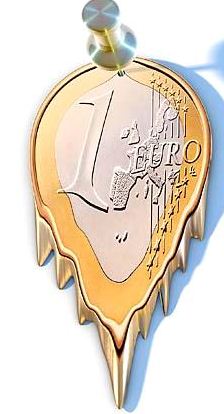Over 30 years of anarchist writing from Ireland listed under hundreds of topics
Economy
The real cost of energy privatisation - a look at the UK
As temperatures drop and household energy bills soar again this autumn, the PR battle to privatise our energy infrastructure is just heating up. The IMF/EU claim that competition, the favourite euphemism for privatisation, will lower costs for consumers. The Government claims, as usual, that it has no choice but to do what its overlords instruct. So now seems like a good time to observe how that privatisation has been working out for our nearest neighbours in the UK.
Resistance pays off in Greece as bond holders burnt
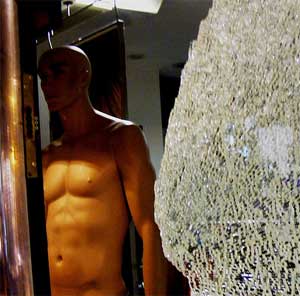 Months of intense resistance by ordinary people in Greece appear to have resulted in a partial victory. The EU crisis summit conceded that bond holders be forced to shoulder 50% of their losses. This did not come easy, Greek workers have staged several general strikes and Athens has seen day after day of large scale rioting.
Months of intense resistance by ordinary people in Greece appear to have resulted in a partial victory. The EU crisis summit conceded that bond holders be forced to shoulder 50% of their losses. This did not come easy, Greek workers have staged several general strikes and Athens has seen day after day of large scale rioting.
The contrast with Ireland is clear. Here the union leadership called off token resistance in the first months of the crisis and workers passively marched, shrugged their shoulders and went home. As a result the ordinary Irish worker alone, the majority of 'the 99%', have shouldered all the costs. Bond holders will scontinue to have their failed gambles covered. Next week alone another 700 million will be handed over to the Irish & global 1% to cover their losses in Anglo. This is our ‘thanks’ for being the poster boys for austerity across Europe.
The basics of Participatory Economics
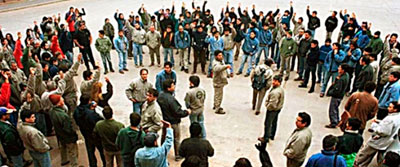 In the last issue we had a missive from the future. It told us of the great changes in the post-revolutionary anarchist world. In this article of the future society series, I will focus solely upon an anarchist vision of a future economy. This is called participatory economics, often abbreviated parecon, a classless economic system proposed primarily by activist and political theorist Michael Albert and, among others, economist Robin Hahnel. The model was developed through the 70s and 80s and the first exclusively parecon books were published in 1991. Many of their early writings concentrated on what they perceived as flaws in Marxist and Marxist-Leninist theory.
In the last issue we had a missive from the future. It told us of the great changes in the post-revolutionary anarchist world. In this article of the future society series, I will focus solely upon an anarchist vision of a future economy. This is called participatory economics, often abbreviated parecon, a classless economic system proposed primarily by activist and political theorist Michael Albert and, among others, economist Robin Hahnel. The model was developed through the 70s and 80s and the first exclusively parecon books were published in 1991. Many of their early writings concentrated on what they perceived as flaws in Marxist and Marxist-Leninist theory.
Interview: Conor McCabe on Sins of the Father
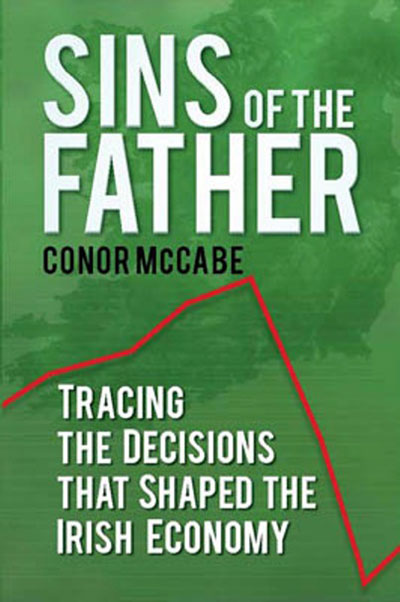 Journalist and writer Conor McCabe’s book ‘Sins Of The Father’ attempts, in the author’s own words, “…to shine a light on the reasons why Ireland has the businesses it has, and why banks and speculators yield so much power and influence.” The book has been acknowledged as a significant contribution to the analysis of the political and economic decisions that have brought the Irish economy to ruin. James McBarron interviewed McCabe for Irish Anarchist Review
Journalist and writer Conor McCabe’s book ‘Sins Of The Father’ attempts, in the author’s own words, “…to shine a light on the reasons why Ireland has the businesses it has, and why banks and speculators yield so much power and influence.” The book has been acknowledged as a significant contribution to the analysis of the political and economic decisions that have brought the Irish economy to ruin. James McBarron interviewed McCabe for Irish Anarchist Review
Bad dreams in the eurozone - Austerity, Austerity and not a recovery in sight
How can you expect growth without investment or stimulus packages? This is question that is screaming to be asked from the European leaders and the ECB who serve up the same policy: menu du jour, austerity slop/soup.
The policy in poetic form reads thus,
Austerity, Austerity, and not a recovery in sight.
Look at the growth figures, or should I say non-growth figures of the Gross Domestic Product for various economies in the second quarter and they only serve to prove this point. The UK 0.2% growth, the USA 0.3% growth, Germany 0.1% growth, the eurozone average is an anaemic 0.2%. Top of the eurozone charts with growth rate of three times the zone average is Belgium. Belgium has been without a Government now for 15 months. 1
Back to school for the Eurozone as the Greek deal collapses
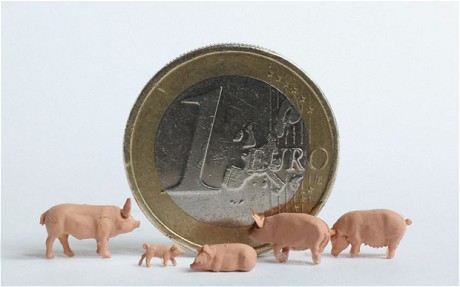
Here we are at the end of the Summer and it’s time for the politicians and bureaucrats of the Eurozone to come back to the office and take a look at what’s lurking in their in-trays. By the same token, it’s also time for all of us interested in fighting back against a Europe of Austerity, to take stock of the lie of the land.
Nelson McCausland 'one strike and your out’ policy for anyone accused of ‘benefit fraud’
Northern Ireland social security minister Nelson McCausland has announced further plans to reform the welfare benefits system including imposing a ‘one strike and your out’ policy for anyone accused of ‘benefit fraud’. The new penalty will cut a claimant's benefit, or stop it entirely, for four weeks following a first fraud offence. This is part of a continuing assault on welfare claimants rights and conditions such as the ‘steps to work programmes’ where we are forced to work for slave wages in token programmes which offer little employment at the end of it.
Leprechaun Leader and his goverment of the little people
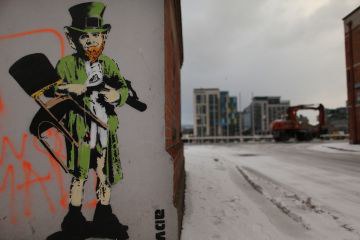 Recently an American friend was over buying tatty gifts for the folks back home. She asked me how did the Leprechaun look come about. Who decided that they were all going to be short arsed red haired people? It was a good question. "Does anyone look like that anyway?" she said. Immediately our present prime minister sprang to mind.
Recently an American friend was over buying tatty gifts for the folks back home. She asked me how did the Leprechaun look come about. Who decided that they were all going to be short arsed red haired people? It was a good question. "Does anyone look like that anyway?" she said. Immediately our present prime minister sprang to mind.
Public sector unions to ballot on strike action to defend jobs, pay and conditions
Up to ninety thousand public sector workers are to be balloted by the largest trade unions Unison and NIPSA on whether to take strike action to defend jobs, pay and conditions. Health and education workers will vote on the ballot between the 22nd August and 20 September as Unison regional secretary Patricia McKeown warns that essential services are facing "the biggest budget cuts in their history."
Resist plans to close Belfast City A&E
The cut-backs in essential public services continues unabated with plans by the Northern Ireland Health minister Edwin Poots to close the Belfast City A&E award by October. This is an attack not only on the staff but the entire community and should be treated as such.


